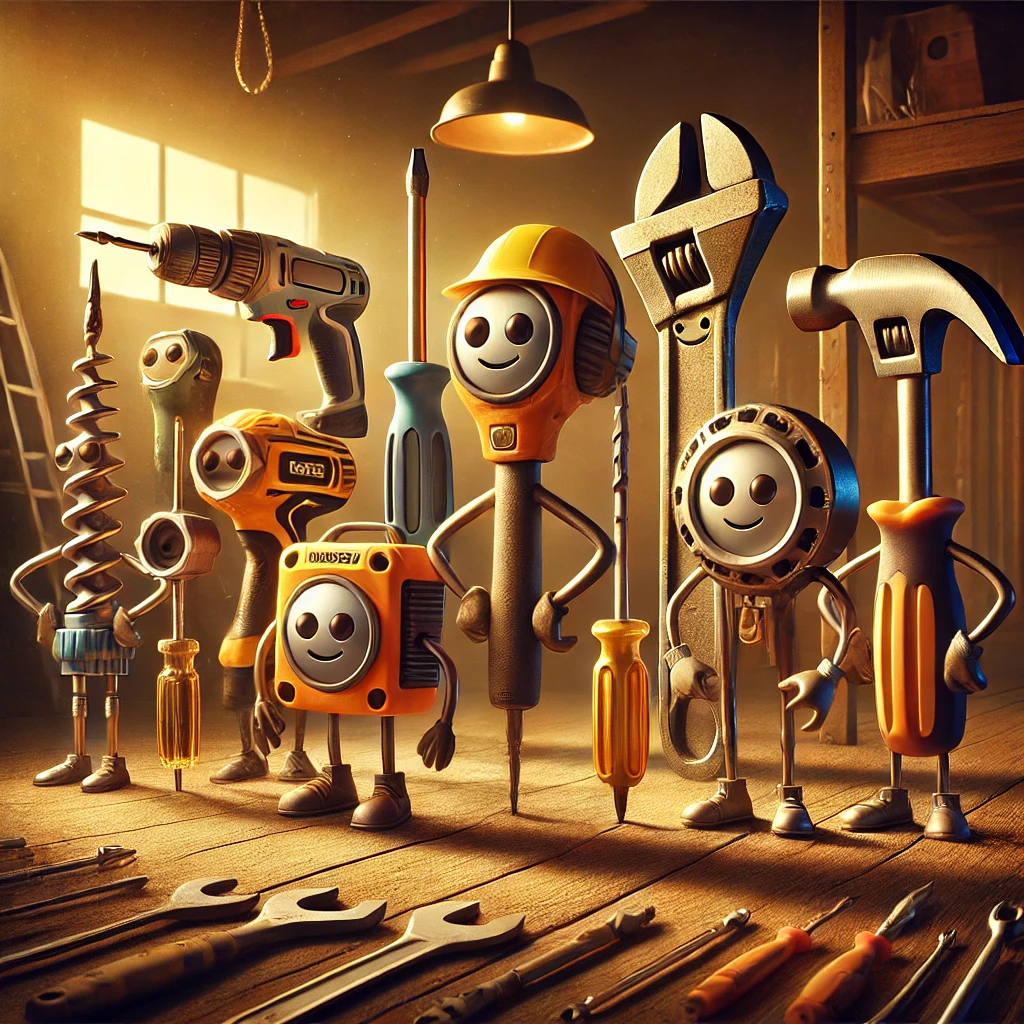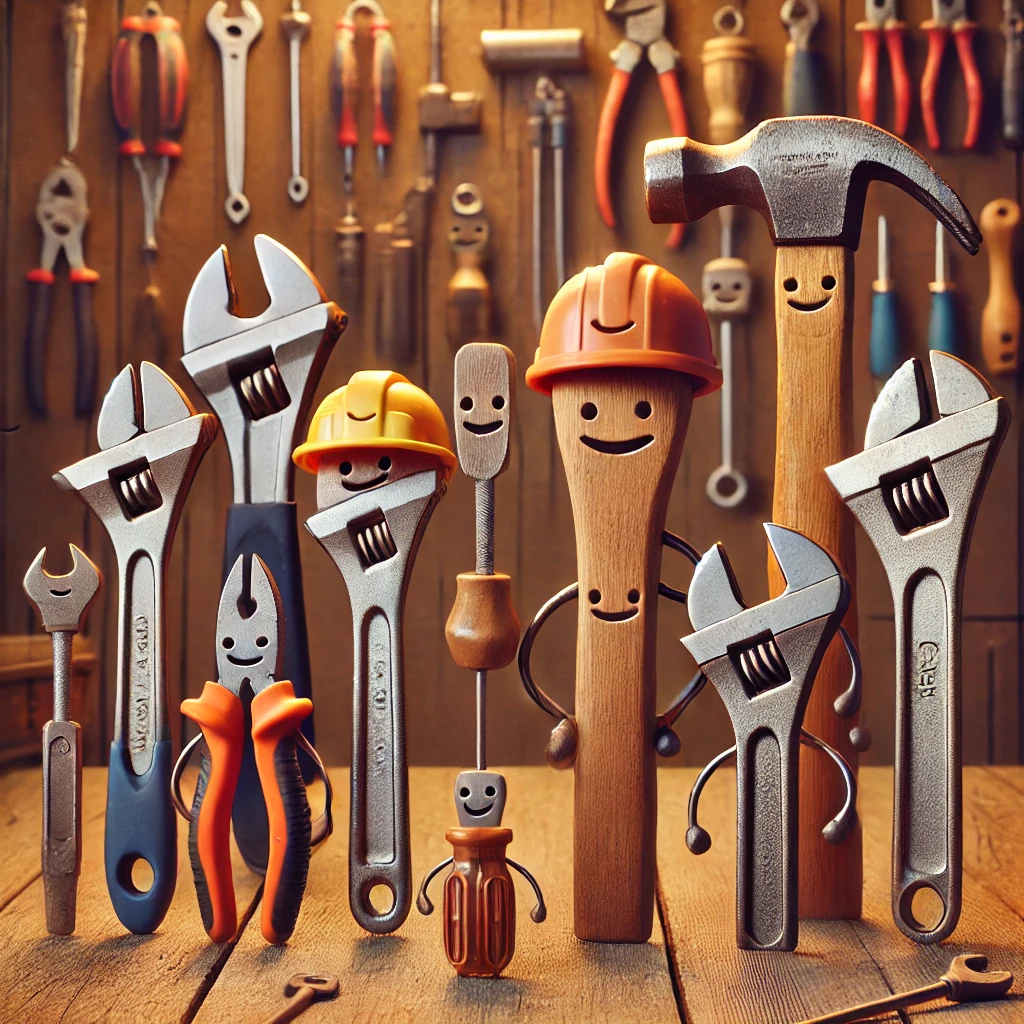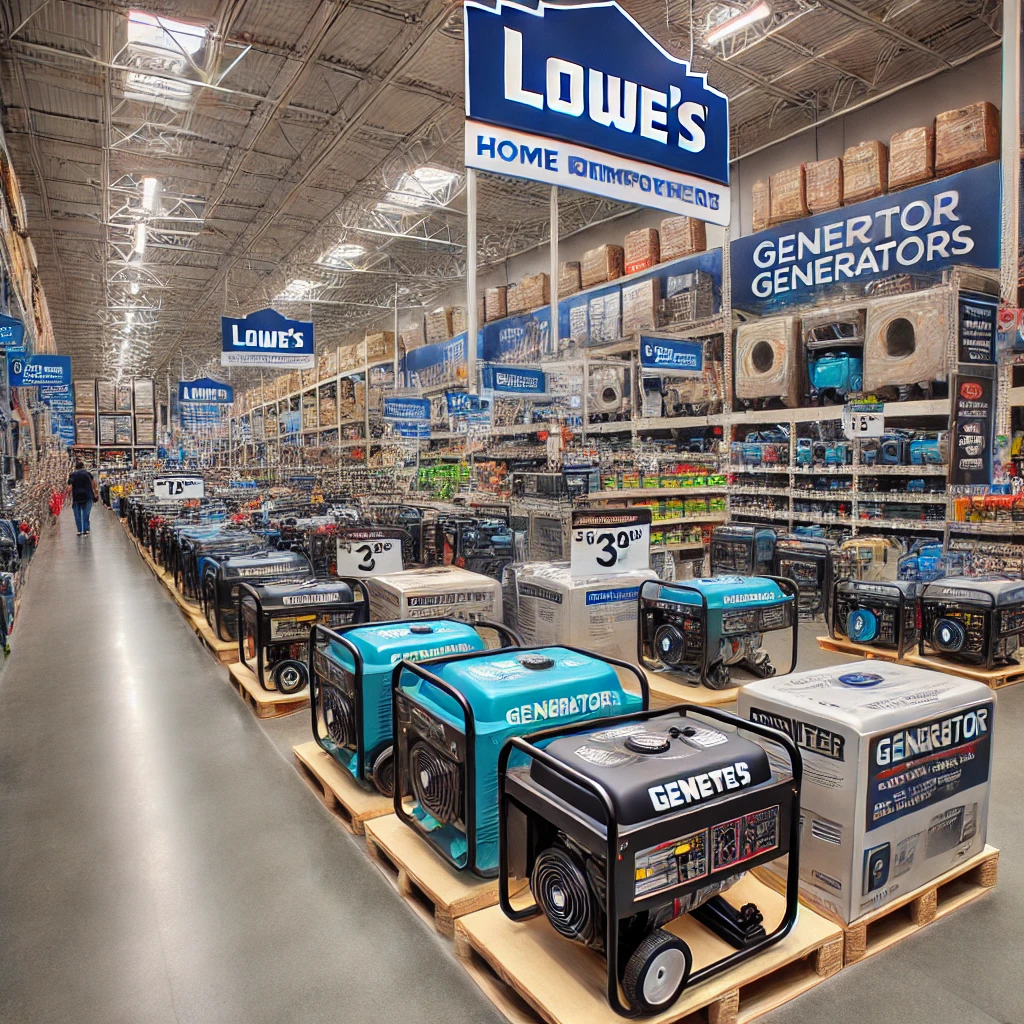The Tooltime Cast: A Complete Analysis 1 of Its Iconic Legacy
The nostalgia-laden waves of television history have seldom seen a show as captivating and enduring as “Tooltime.” This iconic sitcom, a parody within the celebrated series Home Improvement, not only became a cultural reference point but also shaped the career trajectories of its dynamic cast members. The series-within-a-series captured the hearts of millions, offering humor, relatability, and a reflection of the quintessential American home renovation craze. Yet, at the center of this phenomenon were the actors who brought these memorable characters to life, each contributing in their own unique manner to the lore of Tooltime. This article delves into the intricacies of the Tooltime cast, exploring their on-screen personas, behind-the-scenes dynamics, and the legacy they left behind.
Tooltime: A Sitcom Within a Sitcom
The very essence of Tooltime was a show-within-a-show concept featured prominently in the 1990s classic television series Home Improvement. Home Improvement chronicled the life of Tim Taylor, played by the effervescent Tim Allen, a bumbling yet well-meaning handyman, who also hosted his own show called Tooltime. This meta concept offered a glimpse into the life of a fictional DIY television program, delivering a comedic take on home improvement and handyman culture, which resonated with the audience of that era. It was the juxtaposition of Tim Taylor’s antics and the exasperation of his co-hosts that made Tooltime such an integral part of the larger narrative.
The Premise of Tooltime
The premise of Tooltime revolved around showcasing practical tips, tricks, and insights on home renovations, repair techniques, and carpentry, albeit often in an exaggerated and humorous fashion. Its lead, Tim Taylor, brought a comedic flair to the otherwise mundane activities of a home-improvement show, turning what could have been straightforward into a hilarious affair. His frequent mishaps and over-ambitious projects were balanced by the more rational and skillful co-hosts, creating a dynamic that kept viewers coming back for more. However, the real magic of Tooltime lay in the chemistry among its cast, each of whom played pivotal roles in shaping the atmosphere of the show.
Tim Allen as Tim “The Tool Man” Taylor: The Unrivaled Lead
At the heart of both Home Improvement and Tooltime stood Tim Allen, whose portrayal of Tim Taylor became a defining role in his career. Allen’s characterization of Tim Taylor was an amalgamation of humor, overconfidence, and an endearing vulnerability that made him both relatable and unique. As the host of Tooltime, Tim’s character was perpetually enthusiastic about tools, gadgets, and all things mechanical, albeit with a tendency to push the limits far beyond what was advisable.
A Flawed but Beloved Protagonist
Tim Taylor, as portrayed by Allen, was a flawed protagonist who embodied the idealistic yet often misguided notions of masculinity prevalent in the 1990s. He was the quintessential “man’s man,” obsessed with power tools, speed, and proving his expertise—despite the often catastrophic results. Allen’s comedic timing allowed Tim Taylor’s frequent mishaps to become iconic moments of physical comedy, earning him a spot as one of television’s most memorable characters. The audience’s empathy for Tim’s good intentions, even when they led to inevitable failure, was a testament to Allen’s nuanced performance.
Beyond the Character: Tim Allen’s Impact
Beyond the on-screen portrayal, Tim Allen’s role in Tooltime became a cornerstone of his career, transforming him into a household name. The actor brought elements of his own stand-up comedy into the character, with “more power” becoming a trademark catchphrase that encapsulated the show’s ethos. Allen’s comedic chops allowed him to navigate the delicate balance between slapstick humor and moments of genuine warmth, making Tim Taylor an enduring character. His portrayal of the host became so synonymous with home improvement culture that it outlasted the show itself, influencing other DIY and renovation-themed programs.
Richard Karn as Al Borland: The Perfect Foil
While Tim Taylor may have been the star, his dynamic would have been incomplete without Richard Karn’s portrayal of Al Borland, Tim’s co-host and the perfect foil. Al Borland, clad in his signature flannel shirts and imbued with a calm, methodical demeanor, was the antithesis of Tim’s chaotic enthusiasm. As the straight man to Tim’s comedic antics, Al brought a sense of grounding and expertise that added depth to Tooltime.
Al Borland’s Expertise and Patience
Al was the consummate professional, embodying the steady, patient side of home improvement, always ready with sound advice and practical solutions. His exasperation with Tim’s reckless enthusiasm provided the perfect counterbalance, creating a comedic dynamic that was essential to the show’s charm. Richard Karn’s subtle, often deadpan humor made Al’s occasional sarcasm and frustration all the more humorous, turning him into a fan favorite.
Richard Karn’s Role Behind the Scenes
Karn’s contributions to Tooltime extended beyond his on-screen persona. His chemistry with Tim Allen, both on and off the screen, was palpable, and it translated into the effortless banter that became a hallmark of the show. Karn’s presence provided a stable counterpoint to the unpredictability of Allen’s performance, and this dynamic made Tooltime a much richer experience for viewers. Although Al Borland may have been the perennial straight man, Richard Karn’s portrayal turned him into an icon in his own right, offering a balance that kept the narrative engaging and dynamic.
Pamela Anderson as Lisa: The Original Tool Girl
Pamela Anderson’s role as Lisa in the early seasons of Home Improvement and Tooltime marked one of her first major television appearances. Before she became a global sensation with her role in Baywatch, Anderson’s stint as the Tooltime Girl positioned her as a household name. Her character was responsible for introducing the show’s segments, bringing tools to Tim and Al, and providing a youthful presence amidst the seasoned hosts.
Lisa’s Role on Tooltime
Lisa’s role as the Tooltime Girl was emblematic of the era’s TV archetypes, blending charm with the light-hearted appeal of a sidekick who provided visual and narrative balance to the male leads. Although her character lacked the depth and narrative arcs of other cast members, Anderson’s charisma made her a memorable part of the show’s early success. Lisa was portrayed as eager to learn more about the trade, often engaging with the tools and equipment on set, even though she frequently played second fiddle to the more prominent figures of Tim and Al.
Pamela Anderson’s Departure and Legacy
Anderson’s departure from Home Improvement and subsequently Tooltime came as she pursued other opportunities in television and modeling, yet her role in the show had already cemented her as a key figure in 1990s pop culture. While her tenure was brief, the presence she brought to the Tooltime set helped pave the way for her later stardom, and her contribution remains an indelible part of the show’s history.

Debbe Dunning as Heidi: The Successor to the Tool Girl
When Pamela Anderson left the show, Debbe Dunning stepped into the role of the Tooltime Girl, Heidi, bringing a new energy and style to the show. Unlike Lisa, Heidi was characterized with more depth, often engaging in witty repartee with Tim and Al and even becoming involved in some of the narrative arcs. Dunning’s portrayal of Heidi provided a fresh take on the role, as she was presented as not just a helper, but someone who could match the banter of the hosts.
Heidi’s Dynamic Role on Tooltime
Heidi’s character evolved beyond the limited role of simply introducing segments or passing tools. She became a more integrated part of the show, with her interactions with the audience and occasional storylines that went beyond the typical duties of the Tooltime Girl. This shift in characterization allowed Dunning to leave her mark on the series, blending the playful charm expected of her role with a more assertive and engaging presence.
The Transition and Chemistry with the Cast
Dunning’s transition into the role came at a pivotal time in Home Improvement’s run, as the series continued to evolve and explore new dynamics. Her rapport with the primary cast, particularly with Tim Allen and Richard Karn, brought a fresh layer to the established formula, allowing Tooltime to maintain its comedic appeal while exploring new avenues of humor. Dunning’s Heidi became an integral part of the show’s fabric, and her legacy within the Tooltime universe was defined by her ability to elevate the role beyond its original conception.
The Cultural Significance of Tooltime
The enduring charm of Tooltime extends beyond the antics of its host and co-host. It became a cultural touchstone of the 1990s, symbolizing the era’s fascination with DIY culture, home renovation, and the changing perceptions of masculinity and family life. The show’s mix of practical advice and comedic exaggeration resonated with viewers who saw a bit of themselves in Tim’s overconfidence or Al’s meticulousness.
A Reflection of 1990s American Society
Tooltime served as a microcosm of the larger trends in 1990s America, particularly the resurgence of interest in home improvement as a form of self-expression. The show’s humor, which often poked fun at the stereotypical notions of gender roles, reflected the shifting dynamics of the time. Tim Taylor’s attempts at mastering tools and gadgets often ended in humorous failure, offering a gentle critique of the overconfidence often associated with traditional male roles. Yet, at its core, Tooltime celebrated the value of trying, learning, and embracing the imperfections that come with any DIY project.
The Show’s Impact on Television
Tooltime’s influence on subsequent television programming cannot be understated. It helped lay the groundwork for a new wave of home renovation shows that balanced practical advice with entertainment, a format that remains popular to this day. The interplay between the hosts, the blend of humor with practical segments, and the show’s lighthearted take on family life and domestic challenges became a template for many reality TV and scripted programs that followed. Even years after its final episode, the legacy of Tooltime lives on, both as a part of Home Improvement’s broader impact and as a nostalgic touchstone for fans.
A Closer Look at the Relationships and Chemistry
One of the essential elements behind the success of Tooltime was the palpable chemistry between its cast members. Tim Allen’s energetic presence, Richard Karn’s steadying influence, and the charisma of their supporting cast members, such as Debbe Dunning and Pamela Anderson, created a dynamic ensemble that could turn any scene into a memorable moment.
On-Screen Dynamics
The interactions between Tim and Al, as well as the occasional disagreements and reconciliations, formed the backbone of the show’s humor. The natural rhythm of their exchanges, where Al’s deadpan humor would counterbalance Tim’s over-the-top enthusiasm, created an ebb and flow that kept audiences entertained. Meanwhile, characters like Heidi and Lisa added layers of complexity and variety to the interactions, ensuring that Tooltime remained fresh even as it followed a familiar format.
Behind-the-Scenes Collaboration
Behind the scenes, the camaraderie among the cast members translated into their performances. Allen and Karn, in particular, shared a mutual respect and friendship that allowed their on-screen partnership to flourish. This rapport helped elevate the comedic timing and emotional beats of their scenes, making their performances feel authentic and grounded. The shared experiences of the cast, working together to create a show that balanced humor with heartfelt moments, forged bonds that would continue to shape their careers long after Tooltime ended.




